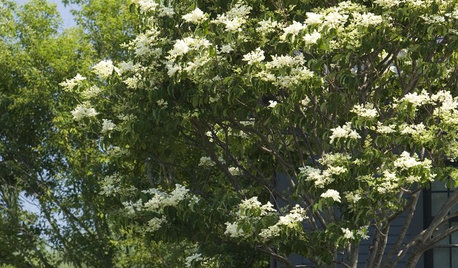Organic Fertilizer Question
littlelizzy123
10 years ago
Related Stories

GARDENING GUIDESGet on a Composting Kick (Hello, Free Fertilizer!)
Quit shelling out for pricey substitutes that aren’t even as good. Here’s how to give your soil the best while lightening your trash load
Full Story
GARDENING GUIDESHow to Switch to an Organic Landscape Plan
Ditch the chemicals for a naturally beautiful lawn and garden, using living fertilizers and other nontoxic treatments
Full Story
SELLING YOUR HOUSE15 Questions to Ask When Interviewing a Real Estate Agent
Here’s what you should find out before selecting an agent to sell your home
Full Story
ORGANIZING4 Questions to Help You Organize Your Favorite Photos
Organize your keeper photos with a system that's just right for you, whether it's in the cloud or you can hold it in your hand
Full Story
ORGANIZINGPre-Storage Checklist: 10 Questions to Ask Yourself Before You Store
Wait, stop. Do you really need to keep that item you’re about to put into storage?
Full Story
GARDENING GUIDESHow to Keep Your Citrus Trees Well Fed and Healthy
Ripe for some citrus fertilizer know-how? This mini guide will help your lemon, orange and grapefruit trees flourish
Full Story
GARDENING GUIDESCommon Myths That May Be Hurting Your Garden
Discover the truth about fertilizer, soil, staking and more to keep your plants healthy and happy
Full Story
MOVINGHiring a Home Inspector? Ask These 10 Questions
How to make sure the pro who performs your home inspection is properly qualified and insured, so you can protect your big investment
Full Story
KITCHEN DESIGN9 Questions to Ask When Planning a Kitchen Pantry
Avoid blunders and get the storage space and layout you need by asking these questions before you begin
Full Story
GARDENING GUIDESNo-Regret Plants: 5 Questions Smart Shoppers Ask
Quit wasting money and time at the garden center. This checklist will ensure that the plants you're eyeing will stick around in your yard
Full StoryMore Discussions






Kimmsr
digdirt2
Related Professionals
West Milford Landscape Architects & Landscape Designers · Ballwin Landscape Architects & Landscape Designers · Brentwood Landscape Architects & Landscape Designers · Clermont Landscape Contractors · Emmaus Landscape Contractors · Fairhope Landscape Contractors · Galveston Landscape Contractors · Lemoore Landscape Contractors · Point Pleasant Landscape Contractors · Roswell Landscape Contractors · Wells Landscape Contractors · Chicago Ridge Landscape Contractors · York Decks, Patios & Outdoor Enclosures · Draper Decks, Patios & Outdoor Enclosures · Wheaton Decks, Patios & Outdoor EnclosuresNatures_Nature
digdirt2
littlelizzy123Original Author
Natures_Nature
alexmac
digdirt2
Kimmsr
feijoas
digdirt2
Kimmsr
bradleyo_gw
digdirt2
Centexronz
bradleyo_gw
digdirt2
bradleyo_gw
digdirt2
elisa_z5
nc_crn
greenbean08_gw
oliveoyl3